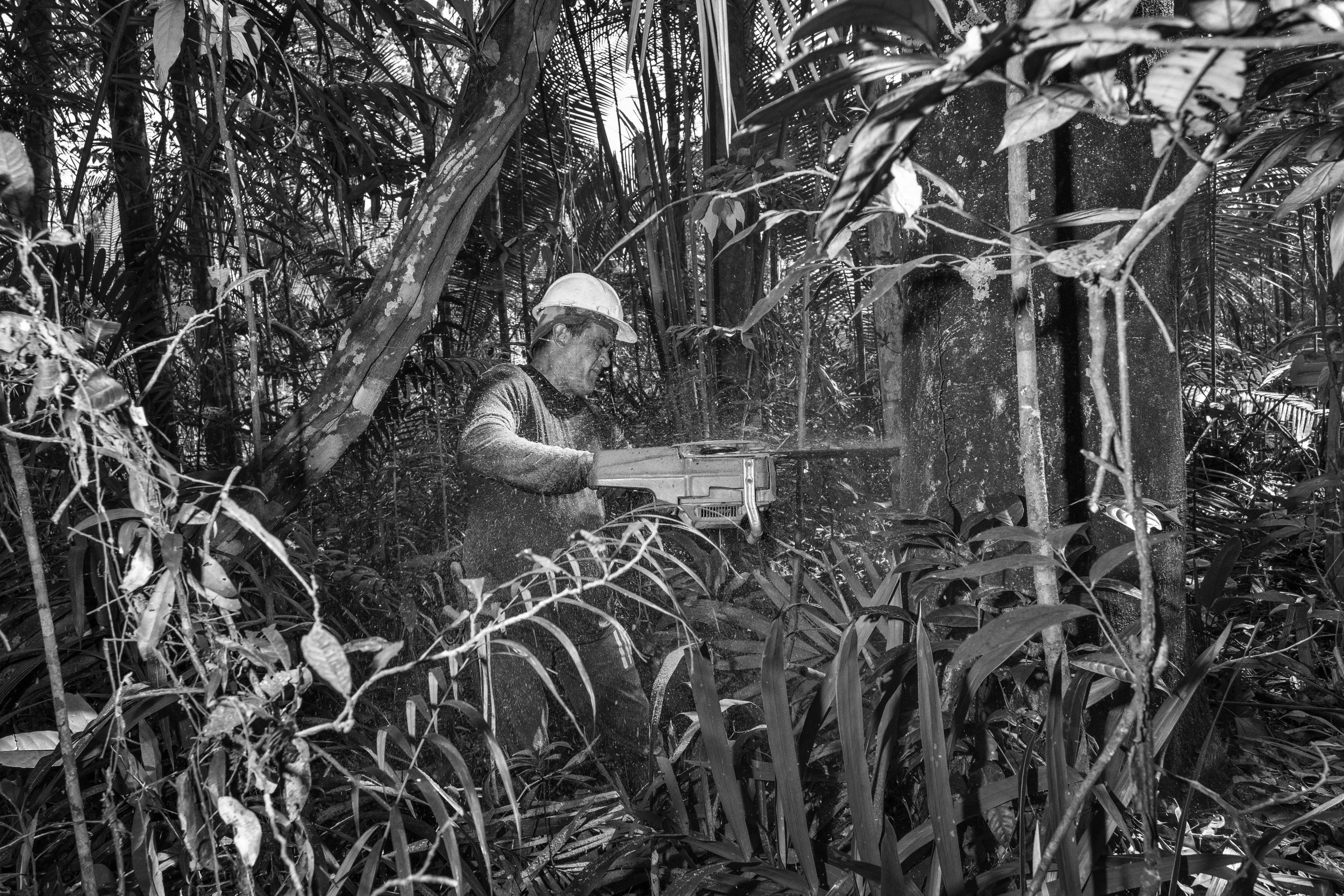Transamargura (2022)
The Transamazonian Highway (BR-230) is one of Brazil’s most ambitious and controversial infrastructure projects. Conceived in the 1970s during the military dictatorship as a strategy to integrate and "develop" the Amazon, the highway stretches over 4,000 kilometers, cutting through vast expanses of rainforest to connect the interior of the Amazon to the country’s northeastern coast.
While initially promoted as a symbol of national progress, the project has brought lasting environmental and social consequences. Its construction opened up previously inaccessible regions to logging, cattle ranching, and land grabbing, sparking widespread deforestation and biodiversity loss. It also facilitated illegal mining and contributed to the displacement of Indigenous and traditional communities, many of whom continue to suffer violence and territorial invasions.
Today, the Transamazonian Highway stands as a stark reminder of how large-scale infrastructure, when executed without environmental safeguards or respect for local populations, can become a powerful force of destruction rather than development.
A stretch of Transamazonian Highway towards Labrea, Amazonas state.
The so-called "Pau do Presidente" (President’s Timber) is the trunk of a chestnut tree marking the start of construction on the Transamazonian Highway. It stands near Altamira, where President Médici inaugurated the first stretch in 1972.
An overturned truckalong the Transamazonian Highway between the cities of Uruara and Ruropolis.
A garimpeiro—wildcat miner—repairs a pipeline at an illegal gold mining site near Jacareacanga, a mining hub in southwestern Pará along the Transamazonian Highway.
These trees died after the Belo Monte Dam flooded 400km² of forest in Altamira, Pará.
Carcasses and skulls of oxen found along the Transamazonian Highway between Apui and Santo Antonio do Matupi, Amazonas state.
Abandoned IBAMA headquarters in Humaitá, torched by wildcat miners in 2017 after a crackdown on illegal gold mining along the Madeira River. Once a key outpost for enforcing anti-deforestation laws in the Amazon, it now stands in ruins along the Transamazonian Highway.
Maria Elsi Alves de Melo (76), photographed at home in Medicilândia, Pará. She and her husband, Antonio (82), migrated from Pernambuco in 1972 to help build the Transamazonian Highway
Two sex workers wait for clients in a nightclub in Porto Rico, a mining town in Pará whose economy revolves around illegal gold extraction on Indigenous lands and protected forests.
Young Tenharim watch a football match in Marmelos village, drinking beer and eating hot dogs. The construction of the Transamazonian Highway has deeply impacted their culture, drawing younger generations toward urban lifestyles and consumer habits.
Evangelicals worship at Assembleia de Deus in Apuí, Amazonas. Though Brazil is largely Catholic, Evangelical churches—ranging from urban mega-temples to remote river chapels—are rapidly growing across the Amazon.
A deforested pastureland along the Transamazonian Highway between Jacareacanga and Apuí, in Amazonas state.
Cows being washed before slaughter at a facility in Uruará.
Paulo, a land grabber living in the rural outskirts of Realidade, Amazonas.
A tire shop along the BR-319 Highway in Realidade, Amazonas state.
A stretch of Transamazonian Highway in Amazonas state.
A logger illegally cuts down a tree along the BR-319 near Realidade to clear land for cattle ranching.
A Paumari Indigenous family departs from the port of Lábrea on the Purus River, where the Transamazonian Highway ends.
Stilt-house neighborhood on the Purus River in Lábrea, Amazonas—marking the end of the Transamazonian Highway.



















